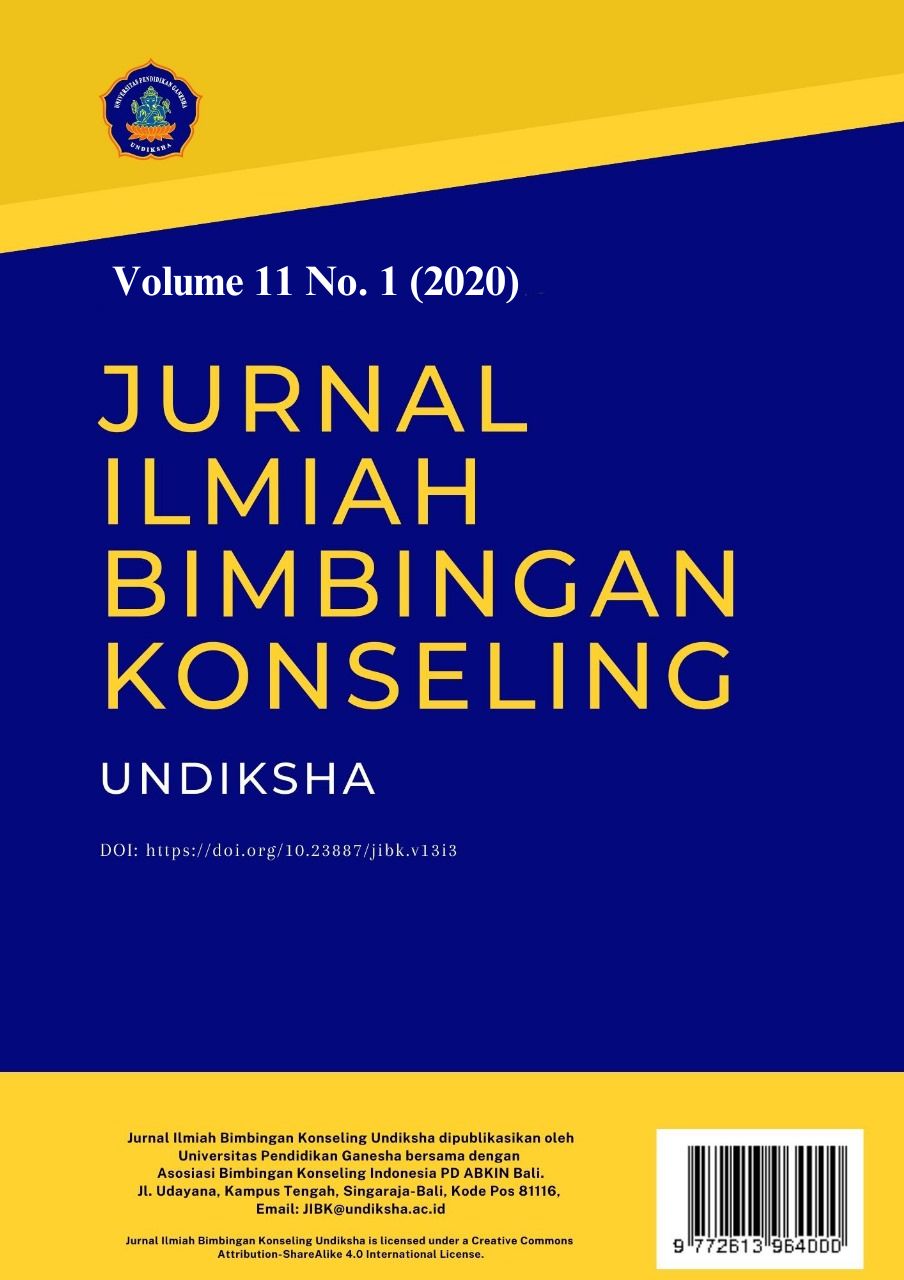Layanan Bimbingan Karir Teori Donal E. Super Guna Meningkatkan Kematangan Karir Pada Peserta Didik Di Sekolah Menengah Kejuruan(SMK)
DOI:
https://doi.org/10.23887/jjbk.v11i1.27383Abstract
In this study analyzed the E. Super theory career guidance service to increase career maturity at students in vocational High School (SMK), so that students can plan for study completion activities, career development and life in the future. Learners can develop all the potential and strength that learners have optimally, and students can adapt to their educational environment, community environment, and work environment. This study used the research method of literature studies, the study of the literature in scientific research is the most important part in a study in which there are several references to articles in the journal, but researchers also need other sources of , papers and government documents and related data in assisting with research. Based on the results of studies and analysis of the results of research that has been done then the career guidance service of Donald Theory E. Super managed to increase career maturity in students in vocational high SchoolDownloads
Published
Issue
Section
License
Jurnal Ilmiah Bimbingan Konseling Undiksha is an Open Access Journal. The authors who publish the manuscript in this journal agree to the following terms:
JIBK is licensed under a Creative Commons Attribution 4.0 International License. This permits anyone to copy, redistribute, remix, transmit and adapt the work provided the original work and source is appropriately cited.
This means:
Jurnal Ilmiah Bimbingan Konseling is licensed under a Creative Commons Attribution 4.0 International License.
(1) Under the CC-BY license, authors retain ownership of the copyright for their article, but authors grant others permission to use the content of publications in JIBK in whole or in part provided that the original work is properly cited. Users (redistributors) of JIBK are required to cite the original source, including the author's names, JIBK as the initial source of publication, year of publication, volume number, issue, and Digital Object Identifier (DOI); (2) The authors are the copyright owner of the article, and the author grants the JIBK held the first publication right.










